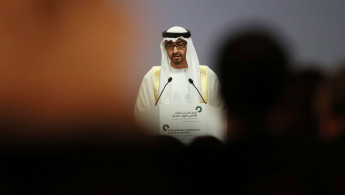'Tolerant' UAE revokes citizenship of dissidents' families: HRW
The government of the oil-rich Gulf state has revoked the citizenship of 19 relatives of two dissidents and at least 30 relatives of six dissidents are barred from leaving the country, the rights group said in a report.
"UAE authorities, in their determination to crush dissent, have allowed their state security apparatus to use its near-unchecked power to continually punish the families of activists, both detained and living abroad," said Michael Page, deputy Middle East and North Africa director at HRW.
"The authorities should cease these vindictive attacks, which amount to collective punishment," he added.
HRW said it documented cases of harassment involving the relatives of eight dissidents, some of whom are serving long-term jail sentences in the Emirates while the others have fled the country and live abroad.
"Between 2013 and 2019, the relatives of all eight dissidents faced restrictions on their access to jobs and higher education," and were prevented from renewing their identity documents, HRW said.
The New York-based rights watchdog did not name the dissidents and UAE authorities were not immediately available for comment.
"None of the restrictions had a clear legal basis, and none of the targeted relatives have been able to get an official government or judicial document mandating the action. Nor have they been able to appeal," said HRW.
Since 2011, UAE authorities began "a sustained assault on freedom of expression and association", arresting and jailing hundreds of lawyers, judges, teachers and activists, HRW said.
Twitter Post
|
"The most egregious abuses are arbitrary detentions, enforced disappearances, and torture," it added.
The UAE, a wealthy Gulf state, is composed of seven emirates governed by different ruling families under the umbrella of a federal government.
It presents itself as an open country and even has a "Ministry of Tolerance" and a "Ministry of Happiness".
"The UAE's police state not only punishes those who peacefully dissent, but harasses and abuses even those related to them, with their intolerance for criticism reaching comical proportions," Page said.
During thr papal visit earlier this year, Amnesty at the time said it should not be used as an opportunity to mask over human rights violations taking place within the UAE, which this year announced its "Year of Tolerance".
"The UAE authorities are trying to brand 2019 as the 'year of tolerance' and are now seeking to cast the Pope's visit as proof of their respect for diversity. Does this mean they are ready to reverse their policy of systematic repression of any form of dissent or criticism?" said Lynn Maalouf, Amnesty International's Middle East Research Director.
"Since 2011, the authorities have systematically cracked down on their critics, including activists, judges, lawyers, academics, students and journalists by way of arbitrary detentions, enforced disappearance, torture and other-ill-treatment".
More recently, the UAE has also signalled its approval of repressive anti-Muslim policies in China and India.
Read more: US security veterans helped UAE build secret surveillance unit that spied on activists, officials
Currently the UAE does not have diplomatic relations with Israel, but Israeli politicians have visited the country and it has been revealed that the UAE has purchased weapons from Israel.
"Despite its assertions about tolerance, the UAE government has demonstrated no real interest in improving its human rights record," said Sarah Leah Whitson, Middle East and North Africa director at Human Rights Watch.
"But the UAE has shown how sensitive it is to its image on the global stage, and Pope Francis should use his visit to press UAE leaders to meet their human rights obligations at home and abroad."
Follow us on Twitter and Instagram to stay connected





 Follow the Middle East's top stories in English at The New Arab on Google News
Follow the Middle East's top stories in English at The New Arab on Google News


